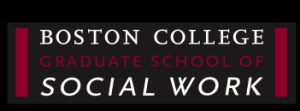From Conflict To Collaboration: Using a Small, Inter-Disciplinary Group for a Gentler and Safer Divorce Process
Instructors: Betsy Ross, LICSW, CGP- Divorce Coach, Mediator, Psychotherapist ;Paula H. Noe, Esquire, Family Law Attorney, Mediator
Date: Saturday, June 15; 9:00AM-12Noon
Location: The Simmons College campus: 300 The Fenway, Boston, MA.
Continuing Education Credits: 3.0 CEUs
From Social Worker to Divorce Coach:
Helping Clients Transition Out of a Marriage Toward a More Successful Future
 I will be teaching a continuing education course at the the Boston College Graduate School of Social Work. The workshop will be held on the first floor of Barat House, located on the BC Newton Campus. (see below for details)
I will be teaching a continuing education course at the the Boston College Graduate School of Social Work. The workshop will be held on the first floor of Barat House, located on the BC Newton Campus. (see below for details)
Course Description:
More and more frequently couples considering (or in the process of) divorce are seeking assistance from specially trained divorce transition coaches or collaborative divorce coaches. Before couples decide what type of divorce process they will use, or even once a divorce process has begun, special psychosocial support is often need. Spouses and other family members often need special support, information and guidance to help them maneuver through the “divorcing process”. Even long after a divorce is completed co-parents often need the services of a divorce coach to revise or update their parenting plan, an important element in the divorce agreement.
Divorce coaching utilizes many of the same skills we have already learned as social workers. With a bit of additional training you too can build successful practice as a divorce coach and help your clients to craft a more civilized divorce process that keeps the well-being of the children, the family and of both individuals front and center.
Instructor: Betsy Ross, LICSW, CGP- Mediator, Divorce Transition Coach
Date: Friday, November 4; 1:45-4:00
Location: The Boston College campus: 885 Centre St., Newton, MA.
Continuing Education Credits: 2.5 CEUs
